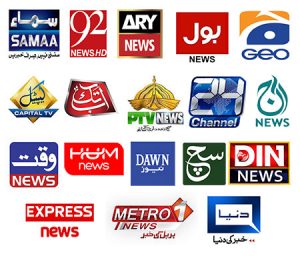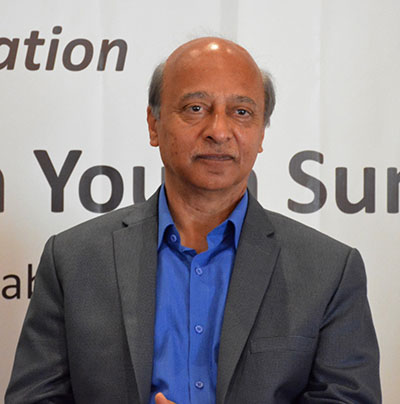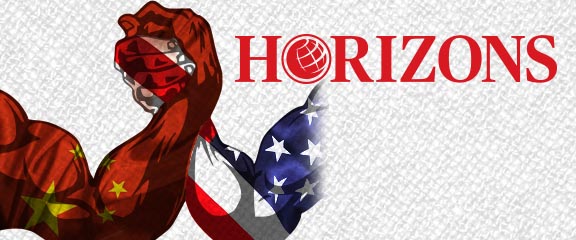How would you characterise a situation arising out of the violation of an existing law or a legal regulation? How, for instance, would you deal with a TV channel or a newspaper which ends up violating the law by offering air time or space to fugitives from the law or absconders or those who are officially barred from media coverage? If the respective organisations were called out by the authorities for violating the law, would it be considered an attack on media freedoms?
No journalist or anchor in a functional democracy, where the media usually adheres to the triple R regime i.e. Rights and Responsibilities Regime (RRR), would even think of deviating from the law or regulation. Nor would the organisation or the journalist project an official call for explanation as an attack on his/her freedom? Why?
Simply because neither does absolute media freedom exist anywhere in the world nor do most journalists in countries with a vibrant media tamper with the laws as they exist in their respective countries. Moreover, they do not hide behind the concept of RIGHTS because they are questioned as to whether they disposed of their responsibility as a journalist or not?
I am tempted to recall my three-year stint with Voice of Germany (Deutsche Welle) in the 1980s. Around mid-August 1985, I translated a critical oped piece by Ghazi Salahuddin about General Zia-ul-Haq’s broken promises since July 1977, when he deposed Zulfikar Ali Bhutto and assumed power. The op-ed had already been published in the daily Dawn a few weeks earlier. As a young journalist averse to military rule, I thought it fit to use the piece for my commentary in the Urdu language programme.
Next morning, my German boss came and said: “Voice of Germany is a goodwill platform, [it’s] not political. You should have avoided such a critical commentary because it spoils the goodwill spirit of this public broadcaster.”
It was then that I realised that the absolute press freedom that we desire, does not exist anywhere. In fact, Zia-ul-Haq had allowed a certain measure of freedom to English newspapers to project a positive image of himself.
However, the Urdu press was subjected to brute censorship, and the vocal journalists among them were jailed, whipped and intimidated like never before. Those were real dark days, particularly the years between 1977-85, when entire pages of Urdu newspapers and some English newsmagazines as well would go blank or black because of excessive censorship. Young military officers would instruct editors to remove editorials or articles at will.
Those grim days for the press and civil liberties, were encapsulated in detail by the late journalist Zamir Niazi in his landmark book Press in Chains (published in 1987 when Gen Zia was still alive). My friends in Germany reacted with disbelief when I read out excerpts from Niazi’s book. For them, it sounded like a passage from a horror movie.
What is happening in Pakistan’s media landscape today is a mix of assorted factors:
A bad business model of TV channels, in the absence of enough due diligence and little industrial/commercial growth in the country.
A pliant judiciary which serves as a cushion between the Pakistan Media Regulatory Authority (PEMRA) and those media houses it penalises for violating the code of conduct. Stay orders against PEMRA’s actions have become the norm; consequently, over 80 per cent of the penalties cannot be recovered because of judicial interventions in the form of stay orders.
Anchors with inflated egos, and writers and TV journalists, who have assumed the role of public relations managers for certain political parties and political activists.
Little discretion and regard is shown by some lead anchors, when it comes to inviting people whom PEMRA has barred from TV appearances, for example Maulana Fazlurrehman Khalil, Hafiz Saeed, Ishaq Dar and Nawaz Sharif.
The unravelling of an electronic media model that was raised on the assumption that the government would keep pumping funds into it.
A decline in the unchecked/unbridled government handouts — both over and under the table to favourite media houses — which was the norm, prior to 2018.

than state restrictions.
No doubt systemic restrictions have had some impact on the way the media functions, but all the aforementioned factors have jointly led to the current situation. Inflows from government outlets to several media houses have shrunk; many jobs have been lost, thus providing activists an excuse to decry the government and the establishment, as a whole, for the abysmal conditions within the electronic media.
But isn’t it ironic that owners of many of the top media houses continue to enjoy the life they did, and diversify their investments, while denying salaries to their workers for months? One of the largest media groups, for example, paid its reporters and other staff way back in April and till early July there were no signs of disbursing the workers’ salaries for the subsequent months.
What’s more, the same channels keep screaming about fundamental rights and calling out state institutions for their wrong-doings. Press freedom is not about blurting out hostile, dramatic narratives and letting guests say whatever they want.
Yes, we must, keep pointing out the failings of state institutions vis-à-vis the media, especially on censorship issues, but we need to fulfil our own responsibilities as mediapersons in an honest manner. It is a two-way street — and not about rights alone.
We must not conflate the consequences of a bad business model (especially in the case of private TV channels) with the lack or absence of media freedoms.
Pakistan’s electronic media’s prime time is awash with all sorts of negative statements, allegations and narratives — it’s literally a free-for-all, something inconceivable in many other countries where media organisations and their foot soldiers have to face legal scrutiny if they deviate from the law.
Media freedoms cannot be looked at in isolation from issues of the lack of respect for the rule of law and adherence to regulations. If an anchor invites a fugitive from the law or a person barred from appearance on a public forum, he/she must be ready to bear the consequences, instead of crying foul.
Tailpiece:
On April 28, I offered a piece to the prestigious East Asia Forum (EAF) on “US Isolation in Stan Countries” after over two decades of engagement in and around Afghanistan. EAF is a journal of the prime Australian National University. Apparently, people within the editorial disliked the way I recounted the consequences of the US policies and the oped has yet to be published.
Absolute principles-based freedom does not exist anywhere. Look at the way the BJP-led Indian government has been hounding Twitter and Facebook for removing what it considers as anti-India content. This is coming from ‘shining India’ that most countries across the world have been touting as “the world’s largest democracy.”

The writer is the founder and Executive Director of the Centre for Research and Security Studies.



